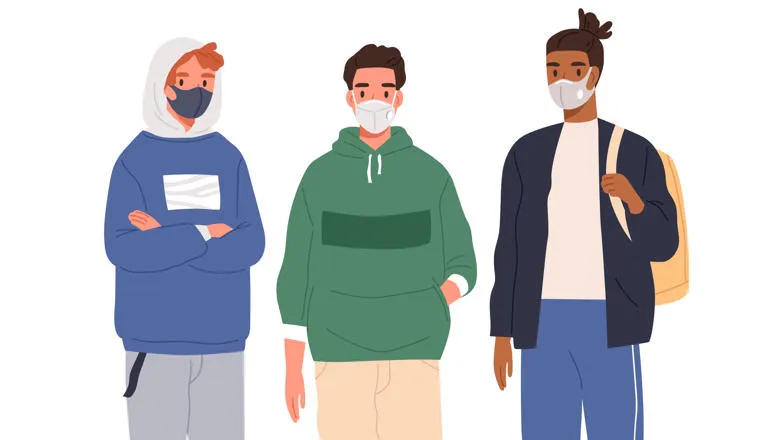“We know that early adolescence is often a critical moment when mental health problems can begin and that is particularly pronounced for girls as they enter adolescence.”
Dr Nicola Wright, King's IoPPN
18 May 2021
Covid-19 associated with a marked increase in mental health issues for 11-12 year olds
The COVID-19 pandemic has coincided with a sharp increase in symptoms of depression and PTSD reported by children aged 11-12

A new study by the Institute of Psychiatry, Psychology & Neuroscience (IoPPN) at King’s College London, in collaboration with the universities of Liverpool and Reading and published in JCPP Advances, shows that the COVID-19 pandemic led to a sharp increase in symptoms of depression and PTSD reported by children aged 11-12.
The researchers are now calling for mental health providers to be given the necessary resources to cope with the increasing demand and complexity of children experiencing mental health problems if they are to keep pace.
The study looks at the mental health of adolescent children, from a sample representative of the general population, that compares levels of emotional and behavioural problems immediately prior to, and during, the pandemic.
There has been widespread concern regarding the impact of COVID-19 and the associated lockdown and social distancing measures on the mental health of children and adolescents.
Children aged 11-12 years and their mothers participating in the Wirral Child Health and Development Study provided mental health data between December 2019 and March 2020 and again three months later. Of 202 participants, 89% were assessed both pre and post the initial lockdown period. Of those, 44% reported an increase in symptoms of depression, while 26% said the same about PTSD.
Girls, as well as children with prior experience of emotional problems and all saw elevated rates of depression both pre and post onset of COVID-19. However, the group that experienced the biggest increase in behavioural problems were those without any prior experience, suggesting that the onset was associated with the pandemic.
Prior to the pandemic, rates of maternal and child depression were greater in families experiencing higher deprivation, but during the pandemic the results showed that they changed only in less deprived families, raising their rates to become comparable with those of the higher deprivation group.
Dr Nicola Wright, Department of Biostatistics & Health Informatics at King’s said,
“Our findings indicate that referrals for depression and disruptive behaviour problems during the pandemic are likely to be made up of two kinds of young people; those with the onset of new mental health problems for which COVID-19 related issues may be the most relevant, and others where COVID-19 has added to pre-existing vulnerability with a need for attention to both.
“What’s not yet clear is whether COVID-19 exposure has simply ‘brought forward’ the first episode of depression in children who would have become depressed later in its absence. Meanwhile the findings underline the need for a better understanding of risk and protective factors for COVID-19 related mental health problems as a basis for new treatments.”
“We owe a big debt of gratitude to the families who have taken part in the Wirral Child Health and Development Study for over 13 years. The families live in a wide range of socioeconomic conditions and have given us a wealth of data on their lives, enabling us to assess the impact of COVID-19 on mental health in early adolescence, whilst taking into account prior parental and child vulnerability in a way that is not usually possible in COVID-response surveys and yet is very important in distilling clear pandemic-related effects”
Professor Helen Sharp, Department of Primary Care and Mental Health at University of Liverpool
The Wirral Child Health and Development Study (WCHADS) is led by Professor Hill, Professor Sharp and Professor Pickles from the Universities of Reading, Liverpool and King’s College London respectively, and funded by the UK Medical Research Council from pregnancy to age 9. Additional research support from Cheshire and Wirral Partnership NHS Foundation Trust and the Liverpool NIHR HPRU in Emerging and Zoonotic Infections, the Centre of Excellence in Infectious Diseases Research (CEIDR) and the Alder Hey Charity enabled the follow-up waves of assessment required to assess the impact of COVID-19 in this paper.
Interplay between long‐term vulnerability and new risk: Young adolescent and maternal mental health immediately before and during the COVID‐19 pandemic (DOI.org/10.1111/jcv2.12008) (Nicola Wright, Jonathan Hill, Helen Sharp, Andrew Pickles) was published in JCPP Advances.
For more information, please contact Patrick O'Brien, Senior Media Officer

